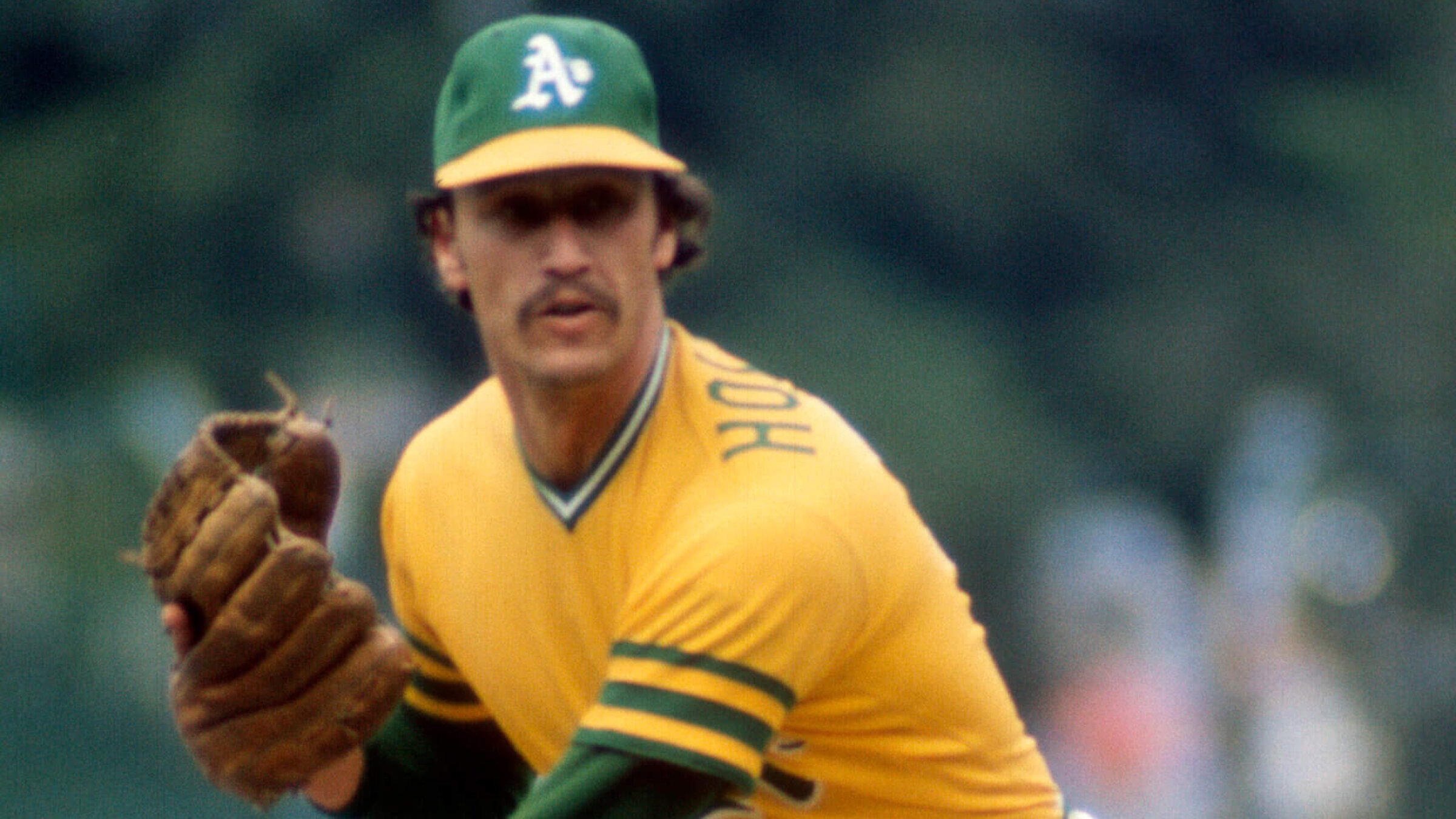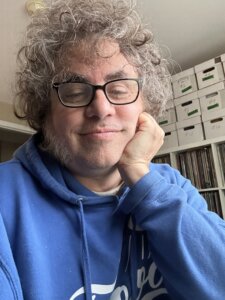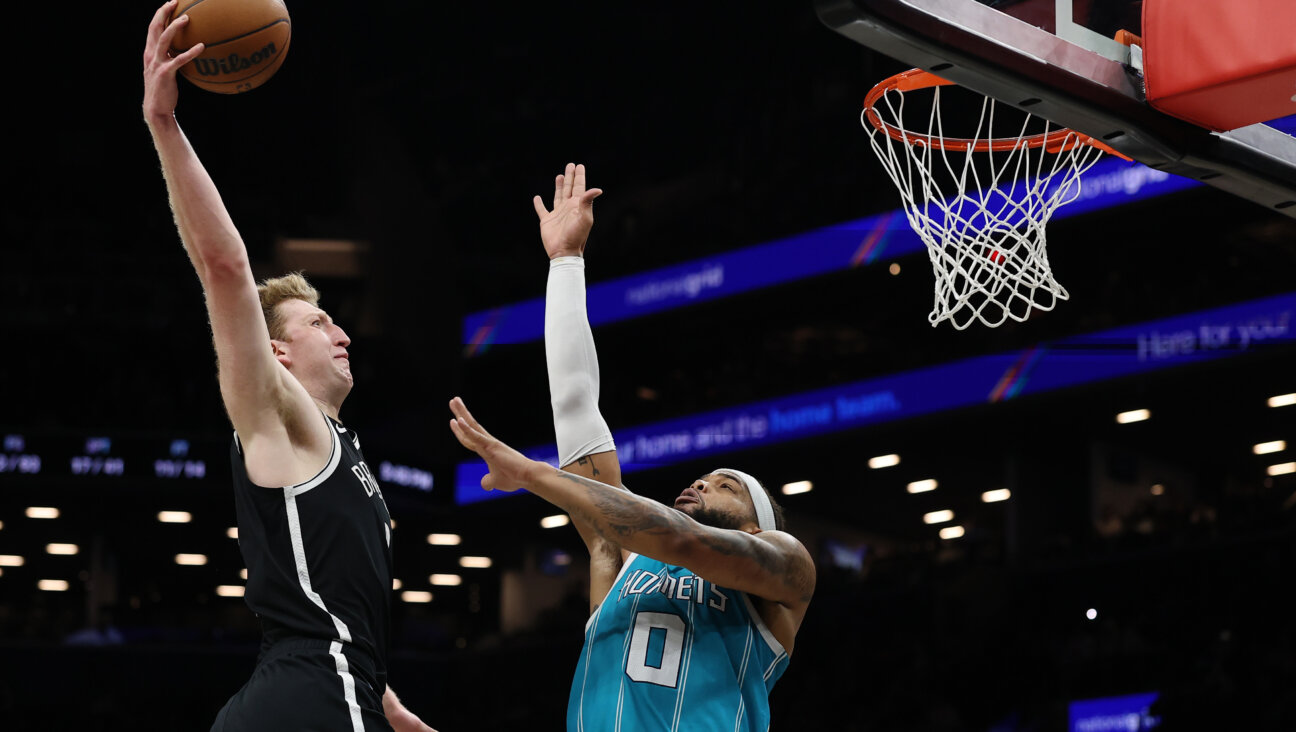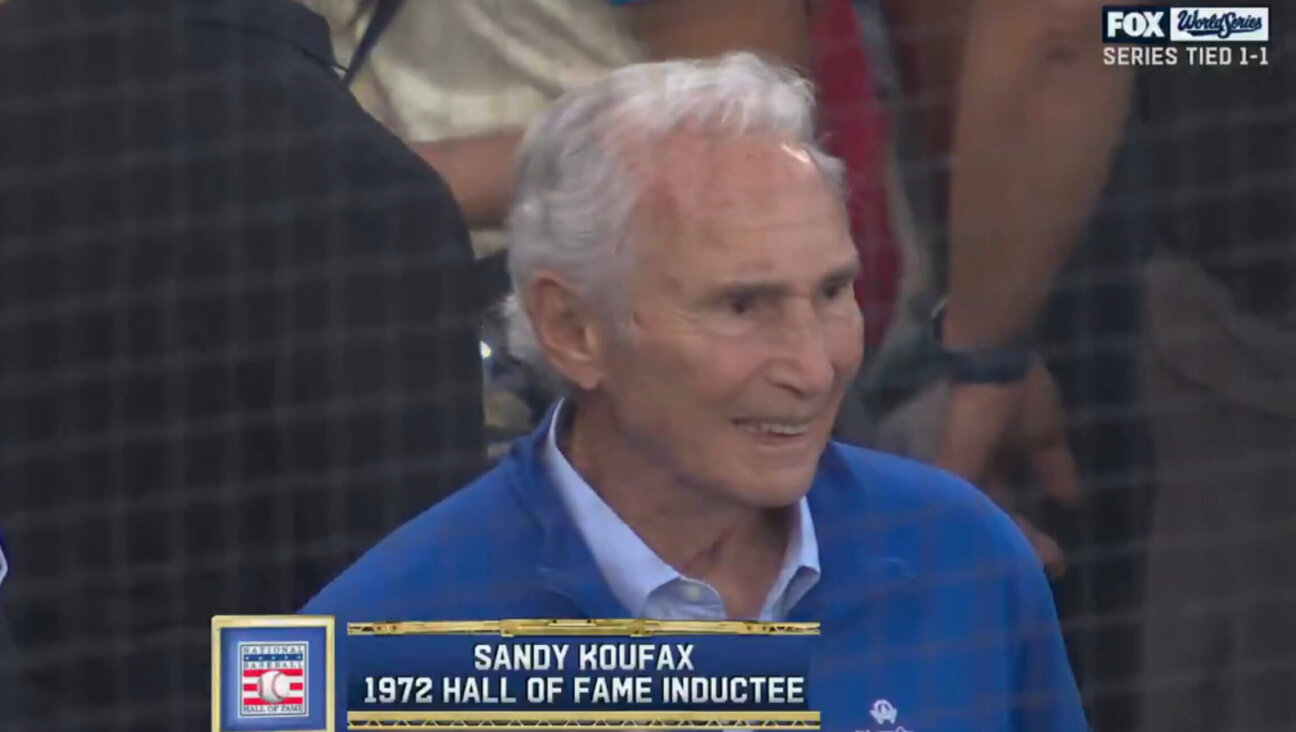He outdueled Sandy Koufax to win the greatest Jewish pitching showdown of all time
Remembering Kenny Holtzman, the thinking man’s baseball hero

Ken Holtzman faces the Baltimore Orioles in 1972. Photo by Getty Images
For decades now, my favorite baseball trivia question — which is almost always guaranteed to win a bar bet — has been this one:
Who is the winningest Jewish pitcher of all time?
The knee-jerk answer is, of course, Sandy Koufax — but the correct one is actually Ken Holtzman, who racked up 174 regular-season Ws over the course of his major league career, to Koufax’s 165. The addition of World Series victories doesn’t change the standings, as both men won four games apiece in the October Classic. Holtzman has the personal won-loss edge over Koufax, as well: In their lone start against each other, September 25, 1966, the 20 year-old Chicago Cubs rookie out-dueled the 30 year-old Dodgers legend, hurling a 2-1 complete game victory.
Pitching wins are no longer considered a reliable benchmark for greatness, of course, and Holtzman — who died April 14 at the age of 78 — would never have dreamed of ranking himself above “The Left Arm of God.” Still, you have to be pretty damn good to pitch every fourth day for a major league team for nearly a decade, and in his prime Holtzman was pretty damn good, indeed. From 1968 to 1976, the lanky lefty averaged 36 starts, 254 innings pitched, 16 wins and 12 complete games per season, making the American League All-Star team twice in the process.
Though primarily a fastball pitcher, Holtzman didn’t simply go up there and blow hitters away a la Koufax; he was all about preparation, location and control. On Aug. 19, 1969, he even managed to no-hit a tough Atlanta Braves lineup without striking out a single batter; only three pitchers in MLB history have ever accomplished a no-K no-no, and none have done it since Holtzman. (A second Holtzman no-hitter, on June 3, 1971, saw him fan six members of the Cincinnati Reds.)
Holtzman’s methodical mound approach and his endless quest for cerebral stimulation off the field — he was an avid doer of crossword puzzles (“The harder the better,” he affirmed to me in a 2011 interview), and was once quoted as saying that he’d read Marcel Proust’s Remembrance of Things Past in the original French — earned him the nickname “The Thinker” from baseball scribes of the day. Asked about the nickname in 2011, Holtzman shrugged off my suggestion that his intellectual abilities gave him any sort of edge on the mound.
“Baseball, to a large extent, is an instinctive sport in which ‘book smarts,’ as the players like to refer to them, are only good for winning chess and bridge tournaments in the clubhouse,” he told me. “The only intelligence which is relevant is that which is needed to make day to day adjustments, in order to compete with the best players in the world and not get overwhelmed. In order to reach the big leagues and stay in the big leagues, one must have an innate knowledge of the game including its strategy and techniques.”
Holtzman did put his considerable intellect to use as a staunch union advocate and player rep during those tumultuous years of the 1970s, when Marvin Miller and the MLB Players Association fought for (and eventually won) the right of free agency for players whose contracts had expired. Holtzman often spoke frankly to the press about the disconnect between MLB owners and their players, correctly predicting to reporters in 1972 that the Chicago Cubs — the organization that had drafted him at age 19 out of the University of Illinois at Urbana-Champaign in 1965, and which had recently traded him to the Oakland A’s — would never win a World Series as long as chewing gum magnate P.K. Wrigley owned the team. “Wrigley never comes to games,” he said at the time. “How can an owner tell what’s going on from watching all of his baseball on television?”
In March 1976, during a contentious contract dispute with Oakland A’s owner Charlie Finley that would eventually result in Holtzman being traded (along with fellow holdout Reggie Jackson) to the Baltimore Orioles, The New York Times quoted him in conversation with teammate Phil Garner, who had recently inked a long-term deal with Finley. “I told you to sign if you got a good deal,” he ribbed the younger player. “I also told you to think about it. You’re not working for the greatest philanthropists in the world, you know.”
Holtzman’s intelligence and forthrightness unsurprisingly failed to endear him to his teams’ owners — and, in some cases, his managers — but he was never the sort to “dumb it down” to make life easier for himself. Born to a Conservative Jewish family in St. Louis, Missouri, Holtzman was raised with education as his top priority; even after signing with the Cubs as a college sophomore for a $65,000 bonus, he went back to the University of Illinois during subsequent off-seasons to earn bachelor’s and master’s degrees in business administration.
Though they insisted on him getting a good education, his parents, Henry and Jacqueline Holtzman, were also highly supportive of his athletic endeavors. In fact, they were both at Wrigley Field for his Sept. 25, 1966 game against Koufax, though only one of them watched what would subsequently go into the books as the greatest Jewish pitching showdown of all time.
“Growing up a Cardinal fan is part of the local culture in St. Louis,” Holtzman told me in 2011. “But because of the obvious ethnic identification, our family took great pride in Sandy’s accomplishments, [which] created a ‘confused’ rooting pattern” when he pitched against the Cardinals.
“The game I pitched against Sandy occurred the day after Yom Kippur and was originally scheduled the day of the holiday, but was pushed back because we both attended services and did not show up at the park. My parents were in Chicago for the holidays, and they were at the game seated directly behind home plate, so I could see them every pitch. However, my mother actually saw none of the game, because she said she was so nervous she walked around the park the entire game without sitting down. I take pride in being the last National League pitcher to beat Sandy, and it remains a very special moment of my career.”
Holtzman’s career hardly lacked for special moments. He pitched for three legendary teams — the star-crossed Cubs of the late 1960s and early 70s, the three-time World Champion “Mustache Gang” A’s of 1972-74, and the “Bronx Zoo” New York Yankees in 1976 and ’77, earning his fourth World Series ring with the latter team, though he didn’t pitch in the post-season in either of those years. Despite the fact that Holtzman had been an invaluable member of the A’s rotation — even beating the Mets in Game 7 of the 1973 World Series — Yankee skipper Billy Martin always seemed reluctant to use him in crucial contests. Reggie Jackson, who also played alongside Holtzman on the Yankees, attributed this reluctance to Martin’s antisemitism, though it could also be argued that Holtzman was just caught in the crossfire of Martin’s endless passive-aggressive struggle with Yankee owner George Steinbrenner, who had traded for Holtzman and a number of other players during the 1976 season without first asking Martin’s advice or permission.
When I asked Holtzman point-blank in 2011 about Martin’s alleged antisemitism and its role in the fact that he was under-utilized, his response was typically thoughtful, if unexpectedly diplomatic. “I encountered my share of antisemitic insults during my career from fans, players and other persons associated with the game,” he told me. “New York was no different, but I chose not to let it affect me as I was dedicated to my craft and felt that any distraction from the job at hand was not fair to me, my teammates and the people that hired me. By the way, during my 15-year career, the High Holidays frequently occurred during the season and every manager was respectful of my wish to go to services and not attend the game those days.”
Holtzman and his A’s teammate Mike Epstein (whose nickname was “Super Jew”) made headlines when, on Sept. 6, 1972, they took the field for a game against the White Sox at Comiskey Park wearing black armbands in recognition of the Israeli athletes who’d been kidnapped and murdered at the Munich Olympics by members of a Palestinian militant organization; teammate Reggie Jackson wore one that night, as well. Such spontaneous demonstrations — not to mention independent uniform modifications — were all but unheard of at the time from players in Major League Baseball, but Holtzman and Epstein felt that, as Jews, they had to say something.
“The game was in Chicago, and when Mike and I heard the news from Munich we were both devastated,” Holtzman told me. “I can’t remember which of us suggested the armbands, but I remember we were walking the streets outside the hotel for several hours wondering what would be an appropriate sign of respect, and we decided on the armbands. We told the clubhouse attendant when we arrived at the park to see what could be done on such short notice, and he arranged for the armbands to be sewn on by a local tailor. We later found out that Reggie had learned of our plans and requested that his uniform should also be fitted with the bands. Our manager, Dick Williams, was very respectful — as were the other players — and I think they stayed on our uniforms for a long time.”
Holtzman, who was traded back to the Cubs in 1978, retired from MLB following the 1979 season with a 174-150 record and a career 3.49 ERA. After leaving the game, he returned to St. Louis, where he worked as a stockbroker and in the insurance industry; he was also deeply active at his local Jewish Community Center. Holtzman briefly donned a baseball uniform again in 2007, when he traveled to Israel to manage the Petkah Tikva Pioneers of the short-lived Israel Baseball League, an experience he regarded in retrospect as both disappointing and enlightening.
“Although the Israeli Baseball League turned out to be poorly planned and financed, the experience of seeing Israel for several months made it worthwhile,” he reflected. “Getting to see the whole country and meeting many Israelis was very educational, and gives one a different perspective than just reading about the situation and making uninformed judgments as many do here in this country. I’m glad I went, and I hope one day Israel is able to plant the seeds of amateur, high-level baseball leading to competitive international competition.”
For those of us who grew up on 1970s baseball, Holtzman’s passing feels like the severing of one more tie to a freewheeling era of players with larger-than-life personalities, as well as a time when “innate knowledge of the game including its strategy and techniques” drove the dugout decisions and on-field action instead of data sheets. But despite his outspokenness to the press, Holtzman was always one of the more level-headed members of the many dysfunctional clubhouses he inhabited, his focus and intensity forever grounded in the gratitude he felt over having made it to “The Show” in the first place. Though he admitted to me in 2011 that his one lingering career regret was never having played for his hometown Cardinals, Holtzman still ranked his first day as a major leaguer above such career accomplishments as the World Series rings, the All-Star selections, and even beating his hero Sandy Koufax head-to-head.
“My biggest thrill and accomplishment remains the first time I walked onto Wrigley Field in a Cubs uniform,” he said, “because it validated all the hard work and sacrifices that I made to reach the big leagues. The other milestones were very satisfying but, in a sense, anti-climactic. Achieving a childhood dream is hard to surpass.”

















